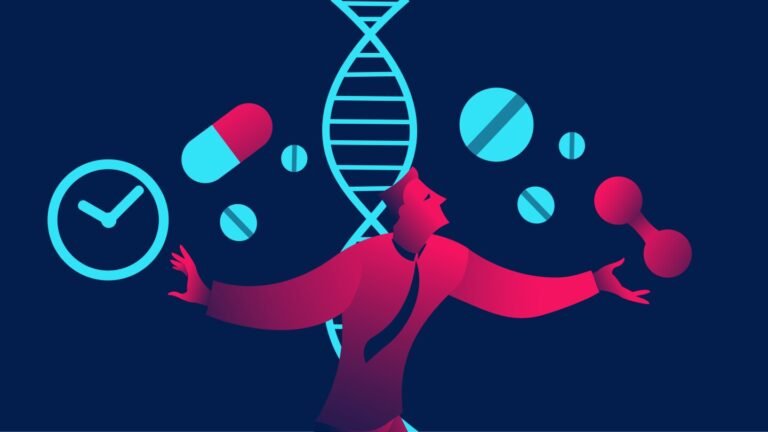Before embarking on any new health or wellness regimen, including intermittent fasting or other biohacking methods, officers should first consult with a medical professional. This step ensures that your new practice is safe and tailored to your health profile.
In the world of biohacking, there are few names as prominent as Brian Johnson. His rigorous and highly publicized routine brought the concept of biohacking to mainstream attention.
Johnson, a technology entrepreneur, has invested millions of dollars into a comprehensive biohacking plan that includes daily exercise, dietary restrictions, and state-of-the-art medical monitoring. His regimen is designed to optimize all aspects of physical and mental health, aiming to reverse the aging process and maximize performance.
The widespread commitment to biohacking demonstrated by figures like Johnson highlights the exciting potential for these practices to have a profound impact on health and wellness. However, we recognize that Mr Johnson’s approach is based on significant financial and time resources, and that the long-term effects of such intensive biohacking programs are not yet fully understood. That is important. This distinction is important for police officers considering incorporating aspects of biohacking into their daily work.
For law enforcement personnel who face unique physical and psychological challenges, there may certainly be valuable lessons to be learned from biohacking strategies that can be adapted to specific needs and constraints. It is important to recognize the limitations of direct comparisons with highly resourced individuals and instead focus on actionable, evidence-based adjustments that can contribute to well-being.
What is biohacking?
Biohacking encompasses a wide range of practices aimed at optimizing human performance, health, and well-being through strategic interventions that affect the body’s biology. These range from simple lifestyle and dietary changes to more advanced technologies, including genetic engineering and wearable technology. The core of biohacking is making small, incremental changes to your lifestyle and body that have a big impact on your health and performance.
The relevance of biohacking for police officers
Working as a police officer puts you under a lot of physical and mental stress. The nature of the job requires you to be in top physical condition, maintain a high level of alertness, and manage stress effectively. Traditional health and wellness approaches may not fully address the unique challenges faced by law enforcement officers. Biohacking features personalized and innovative technology that has the potential to provide customized solutions that improve quality of life.
Here are five important aspects of biohacking and its importance to law enforcement professionals.
1. Personalized nutrition and fitness plan
At the heart of biohacking is customizing nutrition and exercise plans based on an individual’s genetic makeup, lifestyle, and health goals. For police officers, this translates to a diet and training routine that can boost energy levels, strengthen physical strength, and boost immunity. Approaches such as intermittent fasting and ketogenic diets can provide sustained energy, which is important for police officers managing irregular work schedules. Consider this biohacking magazine Track your health and wellness goals as you begin your journey to better health and wellness.
2. Advanced stress management technology
Law enforcement jobs are stressful and require advanced stress management techniques. Biohacking introduces methods such as mindfulness meditation, biofeedback, and the use of adaptogens (natural substances that help the body in combating stressors). These techniques can help police officers deal with stress more effectively and may lead to improved mental clarity in high-pressure situations.
3. Optimize sleep to promote recovery
Quality sleep is essential for cognitive function and overall health, but many police officers struggle with sleep-related issues due to irregular shifts. Biohacking strategies for sleep include: exposure management, Use of sleep tracking devices Add certain supplements to improve sleep quality. Improved sleep increases alertness, reduces reaction time, and improves decision-making ability.
4. Cognitive enhancement for sharper mental acuity
Police work requires sharp cognitive abilities, including memory, concentration, and decision-making skills. Biohacking offers a path to cognitive enhancement through nootropics, which are substances that improve cognitive function, specialized cognitive training programs, and even non-invasive brain stimulation techniques. These tools help officers maintain high levels of cognitive performance, which is essential for complex law enforcement tasks.
5. The power of technology in health monitoring
Wearable technology and mobile health apps play an important role in biohacking, allowing continuous monitoring of health indicators.For police officers, this could mean Real-time tracking of vital signs, physical activity Sleep patterns – Provides data to fine-tune your health and wellness strategy for optimal performance.
Resources to learn more about biohacking
To explore the world of biohacking and gain a deeper understanding of how to implement its principles for health and wellness, below are some resources that will provide you with valuable information.






Police1 uses generative AI to create some content, which is edited and fact-checked by editors.


